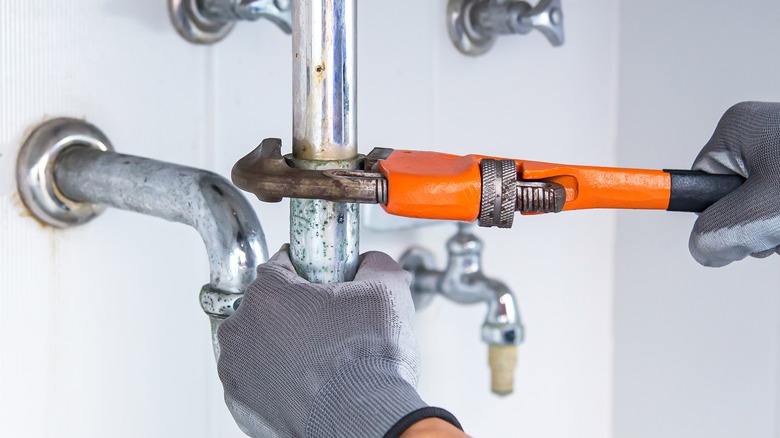The Best Advice For First Generation Homeowners
If you are the first in your family to own a home, you face a unique set of challenges on your journey to purchasing. According to Bank of America, there is an increased importance for homeownership, especially among first-generation buyers. "For many first-generation homeowners and their families, homeownership has a unique importance, given the collective efforts to overcome financial challenges that can often span generations," said AJ Barkley, Head of Neighborhood and Community Lending at Bank of America.
Sometimes, homeownership is a family effort, with 37% of respondents stating that they received family help to purchase their home. No matter the way it comes about, buying a home for the first time is exciting and provides many benefits. In fact, 73% of first-generation homeowners responded that they enjoy the safety and housing security that owning brings. If you are the first person in your family to purchase a home, or at least purchase a home in the U.S., here is the best advice to make the home buying process as painless as possible.
1. Know your credit ahead of time
The better your credit is, the better mortgage you can get. Therefore, before you begin the process of buying a house, take a look at your credit. According to Experian, if your credit isn't high enough to qualify for the kind of mortgage you want, you don't have to panic. There are a number of ways to improve your score that don't involve being debt free. Rather than scrambling to pay off everything, you just need to start thinking about being on time with your payments and not taking on more debt while you work through what you have — other than a mortgage, of course.
The number one thing to do to start improving your credit is to make sure that all of your payments are on time. If a payment is more than 30 days late, it can be reported to a credit bureau and bring your score down. You don't have to pay off your balance each month while you work to improve your score. Instead, simply commit to the minimum payment on time. If you have extra cash each month, putting even a small amount of money towards your debt about two weeks before the next payment date can help you score by a few points. Be sure to speak to your mortgage broker for more specific ideas on your unique credit situation.
2. Be realistic about what you can afford
Once you know your credit score and are working to raise it, the next step to purchasing a home is getting pre-approved for a mortgage. This step is important because it gives you a good idea of what you can afford on your current income. In fact, it's pretty much useless to do any house hunting without a mortgage pre-approval, because you could be touring houses well out of your price range. According to USAA, the mortgage pre-approval process can be pretty detailed. However, the amount of effort that goes into gathering all of the documents you need for it really pays off in the end. This is because you walk away with a realistic expectation of the amount you can borrow for a home.
When you apply for mortgage pre-approval, your lender will need a lot of really personal information about you. They will ask for things like information about all of the debt you currently own. This could be student loan debt, medical debt, credit card debt, or even your car loan. They will also need to know how much money you make each year. They will ask for paystubs and tax returns to back up how much you say you make. Then, they compare your debt to income (DTI) ratio, and give you a number for your mortgage.
3. Don't let a small down payment hold you back
A 20% down payment is typically the magic number to ensure you don't need private mortgage insurance, but you don't actually need that much to successfully purchase a house. If you live in an area with a high cost of living and don't see yourself ever saving up 20% for a deposit while paying rent, don't worry. According to My Mortgage Insider, there are plenty of loans available to people with smaller down payments. Sometimes, you can have as little as just 3% of the total purchase price saved up.
If you served in the U.S. Armed Forces, you are eligible for a great deal on a mortgage from the U.S. Department of Veterans Affairs (VA loan). Or, if you are willing to live in a more rural area, it's easier to get onto the property ladder with a loan from the U.S. Department of Agriculture (USDA loan). Finally, as a first time home buyer, you are able to participate in a loan program from the Federal Housing Administration (FHA loan). Each program has a sliding scale for the size of your deposit based on your credit score.
4. Participate in first time homeowner programs
As mentioned, there are programs specifically for first time homeowners to make things easier for them. While these programs are not specifically aimed towards the first person in their family to purchase a house, those without family who own property might not be aware of them. Because of this, they could lose out on money-saving opportunities. According to USAGov, the two most popular types of home loans in this category are FHA Loans and HUD Homes. Both loan types are sponsored by the Department of Housing and Urban Development (HUD).
The department itself isn't the one giving you the loan. Instead, they offer insurance to mortgage brokers who agree to partner with them to provide the loan. This way, the loan is protected against default — which means that you stop paying your mortgage if needed. Sometimes, the department owns the property directly, and you can buy it from them. This is called a HUD Home. The terms of both programs change greatly depending on how much money you have saved for your deposit, as well as your credit score. To make sure you get the best deal, talk to your mortgage lender about your specific situation.
5. Understand the true cost of closing on a house
When we think about buying a house, we usually only think about saving up our down payment and that's it. However, once you have your down payment saved, there are other costs you'll need to consider and prepare for. According to Rocket Mortgage, closing costs tend to be anywhere from 3% to 6% of the total amount of your mortgage. And, unlike a mortgage that can be paid over time, closing costs must be paid completely in full up front. If you take out a mortgage of $250,000, you are looking at closing costs ranging from $7,500 all the way up to $15,000.
You pay closing costs directly to your lender. They cover things like the lender's labor for putting together the loan for you in the first place, as well as background searches on your home's title. They also cover the home appraisal and inspection process. This is when a professional takes a look at the house you want to buy to make sure that it is actually worth the amount of money you are trying to borrow to pay for it.
6. Familiarize yourself with the most common real estate terms
Sometimes the terminology around buying a house can seem like a different language. To avoid being taken advantage of and to feel more in control of the situation, learn how to speak it. As you navigate the world of real estate, be sure to familiarize yourself with the most common terms that agents, brokers, and the like toss around. Even those who are not the first in their family to purchase a home can be unfamiliar with the lingo. So, if you are ever unsure of what something means, don't be afraid to speak up and ask for a clearer explanation.
According to Agent Image, it doesn't take long to study up on the most common terms in the industry. You can be a professional in as little as ten minutes after looking through a short list. For example, a fixed-rate mortgage means you pay the same interest rate the entire length of the loan. It can be a good idea to lock these in if you purchase while rates are low. However, an adjustable-rate mortgage (ARM) has an interest rate that changes over the life of the loan.
7. Know that home buying is an emotional process – and that's okay
Your feelings are going to be all over the place while you are purchasing a home, especially if you are the very first person in your family to do so. This is normal, so don't feel too overwhelmed that something is wrong because it feels hard. According to Rocket Mortgage, the reasons we want to buy a home propel our feelings about the process. Sometimes, we don't like the place we are renting and are tired of relying on lousy landlords, and other times we have been saving for years and are finally ready to move out of our family homes into our own place.
Moving is an inherently stressful task. Therefore, it makes sense that adding large amounts of financial changes to the process would make things even more intense. Then, add in falling in love with homes only to be out bid in the negotiation process, or the frustrations of not being approved for a large enough mortgage. Know that there will be plenty of setbacks, and for some, lots of tears, but it will all work out how it's supposed to in the end.
8. Take your time choosing a real estate agent
According to a survey conducted by the National Association of Realtors, only 73% percent of buyers interview more than one real estate agent. This means that 27% of homeowners in America only talk to one person before entrusting them with the responsibility of walking them through the largest financial process of their life. If you are the first person in your family to buy a home, don't do this. Instead, take your time searching for a real estate agent and find one that really works for you.
So, what do you look for in a real estate agent? Check out their track record. Do they often help buyers in your price range get good deals in the area that you are interested in? Do they have a solid web presence with a large portfolio of happy previous clients? When you speak to them, are they friendly and helpful, or do they brush you off? They should communicate in a way that makes you feel at ease (via Boutique Property Agents). Be sure to interview at least three agents, so you can have a better chance of working with someone who is going to be your advocate.
9. Research mortgage scams before you begin the home buying process
Buying a home is the biggest financial decision most of us will ever make. Unfortunately, there are plenty of scammers out there who will take advantage of this. So, as the first one in your family to purchase a home, take extra care when you start the process to avoid falling victim to one. According to the Consumer Financial Protection Bureau, mortgage scams are unfortunately on the rise. Between the years of 2015 and 2017, reports of phishing scams rose over 1,000%. In 2017 alone, over a billion dollars was lost to real estate scams.
The way the most common scams typically work is that someone posing as a real estate professional will attempt to connect with you about either viewing a house or securing a mortgage. They will then collect intimate information from you, like your social security number, bank account information, paystubs, etc. From there, they can go on to open accounts in your name, stealing your financial identity. To avoid these scams, be sure you are working with a real estate professional that is legitimate. Only choose people with websites and plenty of online reviews. You can also check to see they are members of professional organizations, like the National Association of Realtors.
10. Select the worst house in the best area
If you purchase a home that's a bit outdated, you can raise the funds to renovate your home to modern standards, or to suit your personal taste. There is one thing that you cannot change, however, and that is the location of the home. Because of this, instead of purchasing the perfect house in an area that isn't as nice, or is really far from your workplace or school, buy a house that isn't as nice, but is in a great spot.
According to Investopedia, there are a few main things that factor into a home having a good location. For example, the actual lot size of the property — is it big enough that it can fit amenities like a garage or backyard? Is the neighborhood around it nice? Is it easy to get around near the home? Look at things like proximity to public transport, main roads, local attractions, etc. Finally, think about the overall development of the area. Are lots of improvements being made to the community? If so, the value of the home will likely increase exponentially.
11. Budget for home maintenance each month
When renting, you have to rely on your landlord for plumbing problems, etc. This can be a great benefit, as your only responsibility when something goes wrong in the house is to give your landlord a call. However, it can also be a source of great annoyance for some renters because sometimes landlords do not fix things that renters see as quite urgent. Either way, when you own a home, it's all on you. If a pipe bursts and floods your basement, the toilet overflows, or the power goes out, it's up to you to fix everything.
Therefore, when making a budget for your new monthly mortgage payment, consider adding in a column for maintenance repairs, too. According to Polda Builders, the most common home repairs are a dishwasher that smells rank, loose shower heads, and drafty windows. These are smaller, easy fixes, but don't let them fool you, as you don't want to be caught without an emergency fund in place for larger repairs.
12. Don't get overwhelmed looking for the perfect house
If you are overwhelmed by the home buying process, keep something important in mind: the first house you buy doesn't have to be your forever home. It can be hard to wrap your mind around putting all this time and effort into buying a house, just to move away later on. However, our circumstances often change and so do our housing needs. For example, even if we don't get a new job far away, we might have a child and need more space, or earn more money and want to upgrade our lifestyle.
In the beginning, just look for your starter home. According to Investopedia, a starter home has different qualities than a forever home. You should think of it more as just the first rung on the property ladder, rather than the place that will fit all your needs forever. There might be big compromises on the home — maybe it only has two bedrooms or a small backyard — but it should still serve a few of your immediate needs. Look at your lifestyle now and think of one or two non-negotiables, and then go from there.
13. Remember why you're choosing to buy in the first place
The homebuying process is stressful. Remember why you're in it when things get tough. According to research conducted by Fannie Mae, most people have strong emotional reasons for wanting to buy a house. These include wanting a safe and secure place to raise their children, more control over the space they live in, and a better sense of privacy.
If you grew up in a family that only rented and now wants to purchase a home of your own, these feelings are often amplified. And you are not alone — as 87% of those surveyed stated that they believe owning a home is essential to a high quality of life. As you walk through the home buying process as the first in your family, there are going to be some major ups and downs. But don't let them hold you back or discourage you too much. Soon enough, you will be home.













